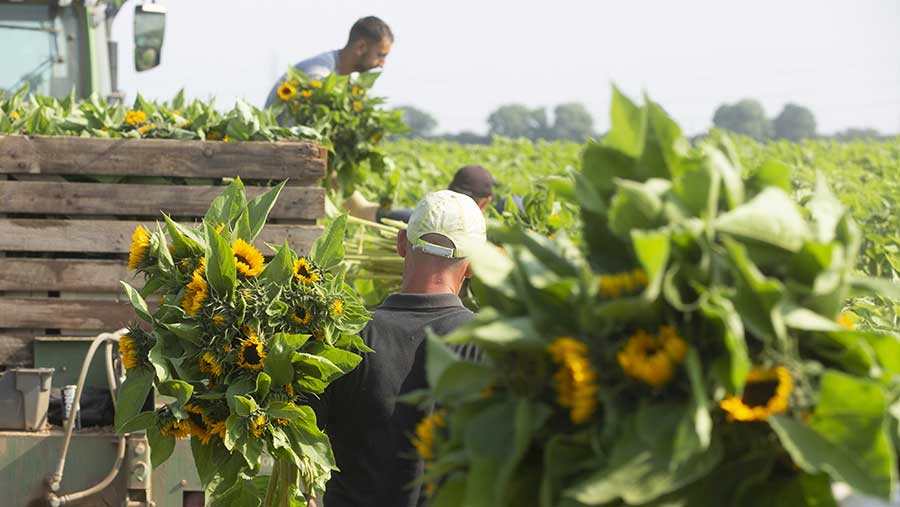‘Joined-up’ government needed for Seasonal Worker Scheme
 © Tim Scrivener
© Tim Scrivener A more joined-up approach across government and a single enforcement body are two key recommendations to improve operating conditions for migrant workers and labour providers in the Seasonal Worker Scheme (SWS).
Both recommendations to government were made during a parliamentary evidence session on Thursday 11 May as part of a new House of Lords inquiry into the challenges facing the horticulture sector.
As many as 45,000 temporary seasonal migrant workers will come to the UK this summer to work in the horticulture sector to pick and pack crops on farms.
See also: Ditching of English horticulture strategy ‘beggars belief’
Temporary visas of up to six months will only be granted to businesses that can commit to pay workers the minimum wage of £10.42/hour for a guaranteed minimum of 32 hours a week.
Before the Ukraine war, up to 80% of all temporary workers hired under the scheme were from Ukraine, Russia and Belarus. But last year, workers from more than 60 countries were hired through the SWS.
Caroline Robinson, an independent expert on labour exploitation, said the government should learn lessons from how the seasonal farm labour scheme is run in Canada, where there are just 12 participating countries, mainly from South America and the Caribbean.
Ms Robinson said a “narrowing” of countries in Canada has helped to provide more consistency, better engagement with workers, including support for language and cultural differences.
The Canadian system also uses a standardised contract at the point of recruitment, and the government has input in the contract, which is shared with workers in the country of origin, including the time they will be employed.
In the UK, concerns about welfare, the charging of illegal recruitment fees, poor standards of accommodation and temporary farmworkers having contracts terminated early were also raised at the Lords evidence session.
Kate Roberts, head of policy at Focus on Labour Exploitation, said interim findings of research it started in January 2022 found only 73% of SWS workers reported having access to a working toilet and just 39% said they felt safe in their accommodation.
However, 28% of respondents did not know where to go to get help.
“These factors combine to create a very risky situation, which is why we’re talking about very proactive enforcement of standards,” she added.
The inquiry continues.
